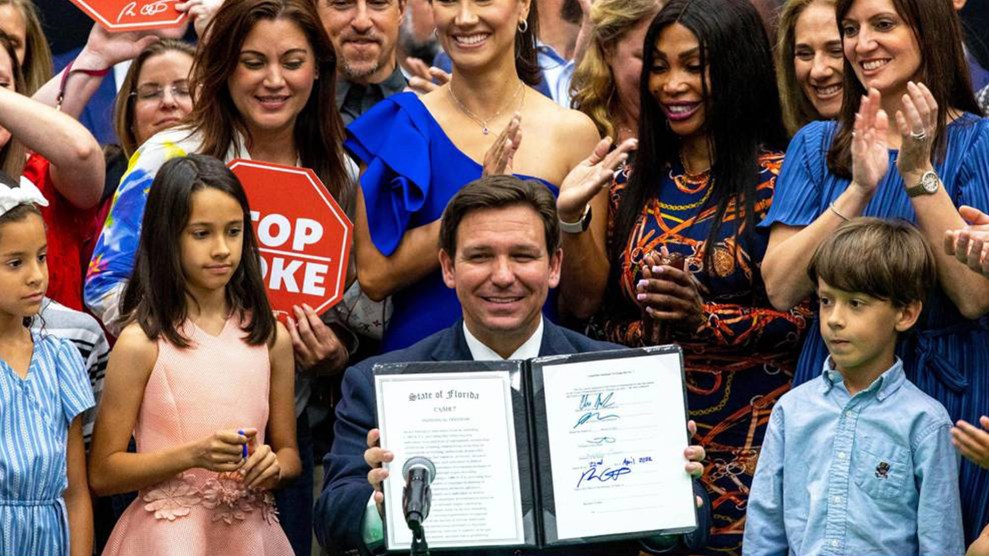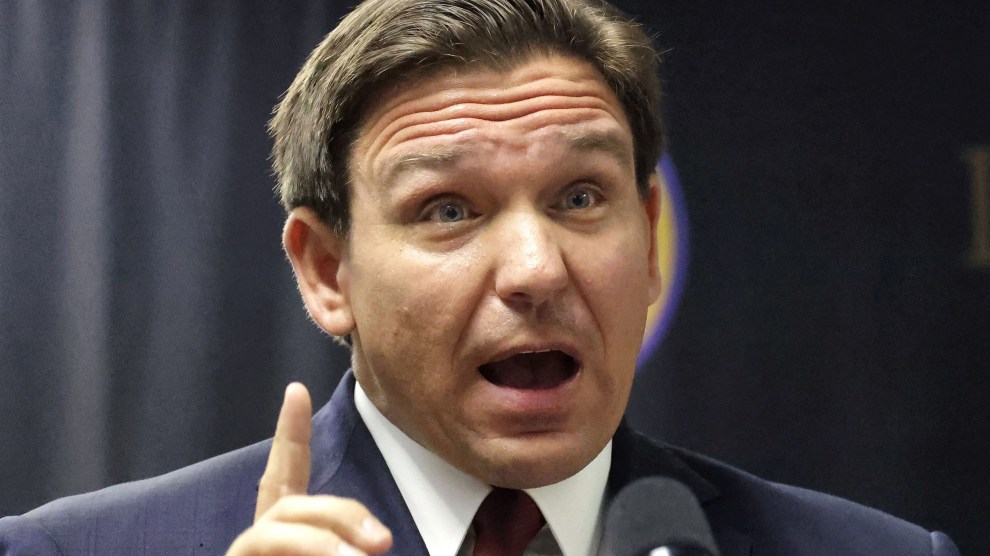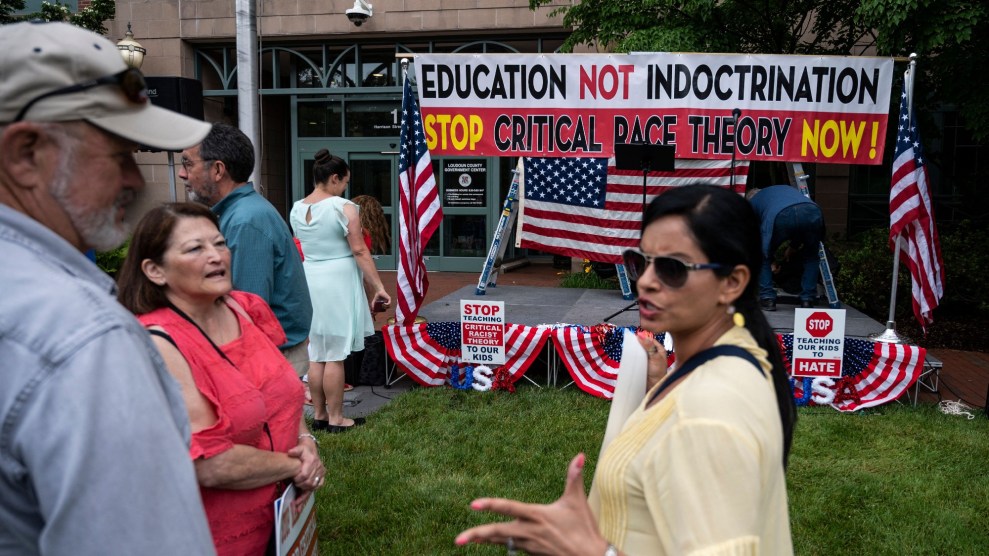
Florida Gov. Ron DeSantis reacts after signing HB 7, dubbed the ''stop woke'' bill, in Hialeah Gardens, Florida, on Friday, April 22, 2022. Daniel A. Varela/Miami Herald/TNS/ZUMA
Florida textbooks may no longer teach “social justice,” according to new state guidance, part of Florida Republican Gov. Ron DeSantis’ ongoing attack on pluralistic democracy.
The guidance, which was recently updated but is undated, states that “social justice” is now one of the topics that are prohibited in state-approved textbooks for K-12 social studies classes. According to Politico, which reported on the new criteria, textbook publishers have until June 10 to submit social studies proposals. The DeSantis administration recently rejected math textbooks for including “impermissible” topics—a warning shot to publishers that the state will make political hay by rejecting textbooks with even a hint at the fact that America is not a perfectly fair, racism-free country.
Social justice generally refers to the movement for equality in American society and against unfair treatment and unequal opportunities, and is often associated with movements against racism, sexism, and anti-LBGTQ rights. Clearly, Florida Republicans want to keep such movements out of Florida classrooms. The new rules do not actually define social justice but merely include three prohibited ideas:
- Potential Social Justice components include:
- Seeking to eliminate undeserved disadvantages for selected groups.
- Undeserved disadvantages are from mere chance of birth and are factors beyond anyone’s control, thereby landing different groups in different conditions.
- Equality of treatment under the law is not a sufficient condition to achieve justice.
Under this definition of social justice, Florida textbooks cannot actually explain or acknowledge that some people in society receive better treatment and advantages than others. Because the guidance leaves the scope of social justice open-ended, publishers will likely go beyond this definition in order to meet the state’s new criteria.
The guidance also bans inclusion of critical race theory, social and emotional learning, and “any other unsolicited theories that may lead to student indoctrination”—using a broad approach to suppress any attempt to acknowledge the ongoing presence of discrimination.
The list of topics included under the CRT prohibition makes clear that Florida classrooms must not acknowledge that there is any lasting effect from slavery, Jim Crow, or other forms of oppression in American life. Complying textbooks would have to convey that any pesky problems like racism and segregation have been solved. In this way, the textbooks will reflect the restrictions placed on teachers by the “Stop WOKE Act,” which DeSantis signed last month. That law restricts how teachers, college professors, and employee trainings discuss race, oppression, and the country’s founding, with language that’s identical to that of the textbook restrictions.
If the “Stop WOKE Act,” which is being challenged in court, stands, alongside the textbook restrictions, then Florida classrooms will present a distorted image of American history and society today, one where everyone has an equal shot at success and the vestiges of oppression have fallen away. When the students step out into the Florida sunshine, however, they will still live in today’s America, one made even more oppressive and authoritarian by their own schools.











